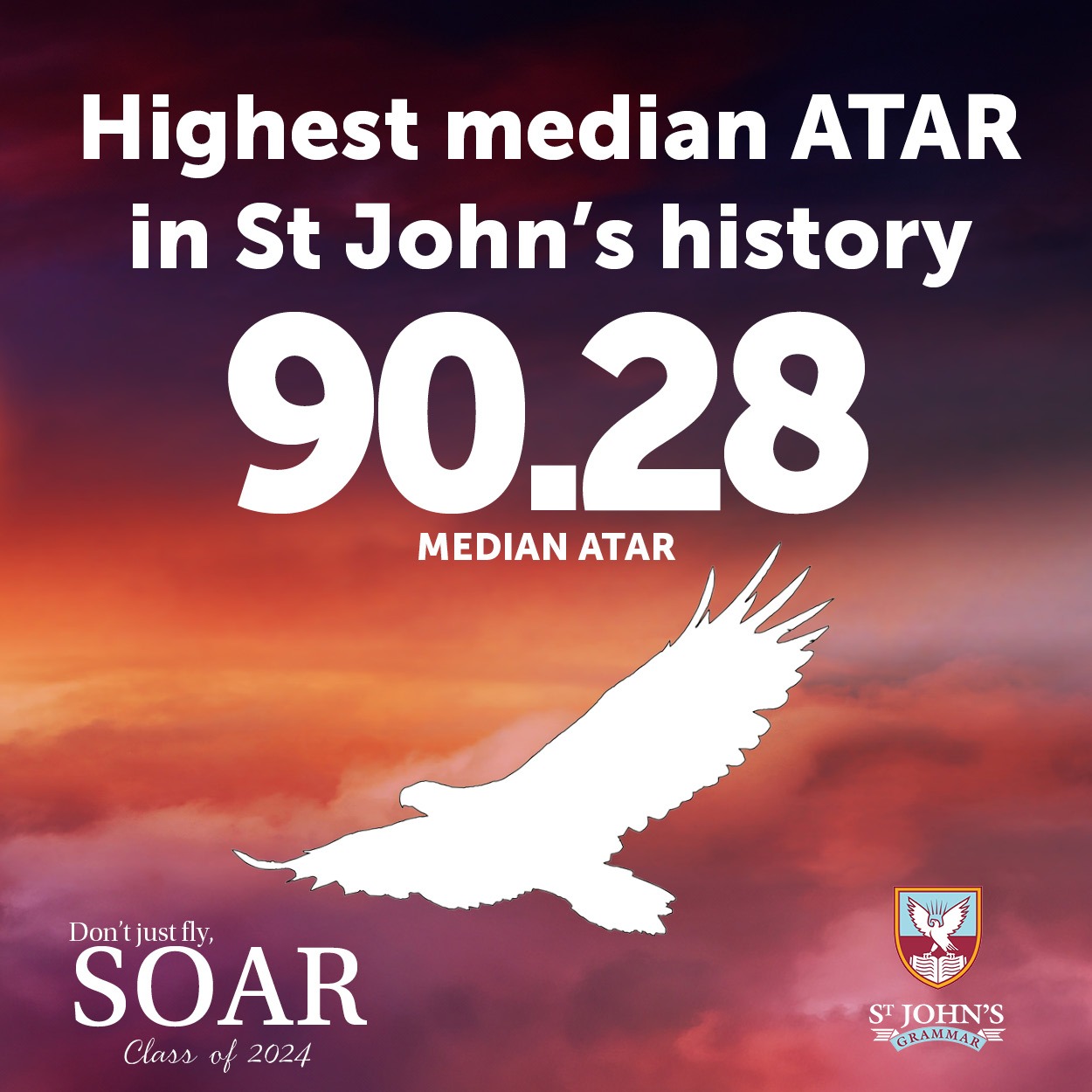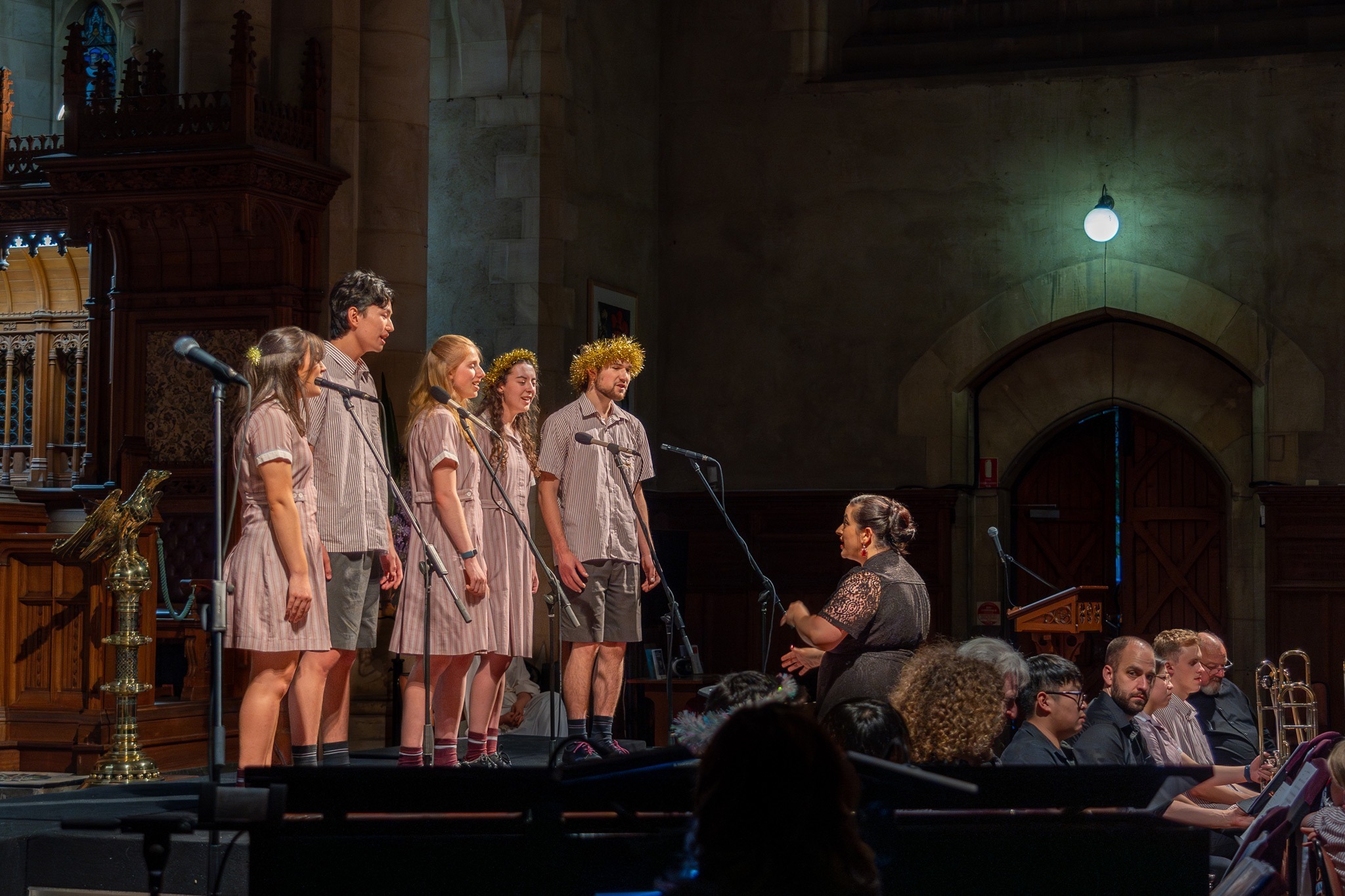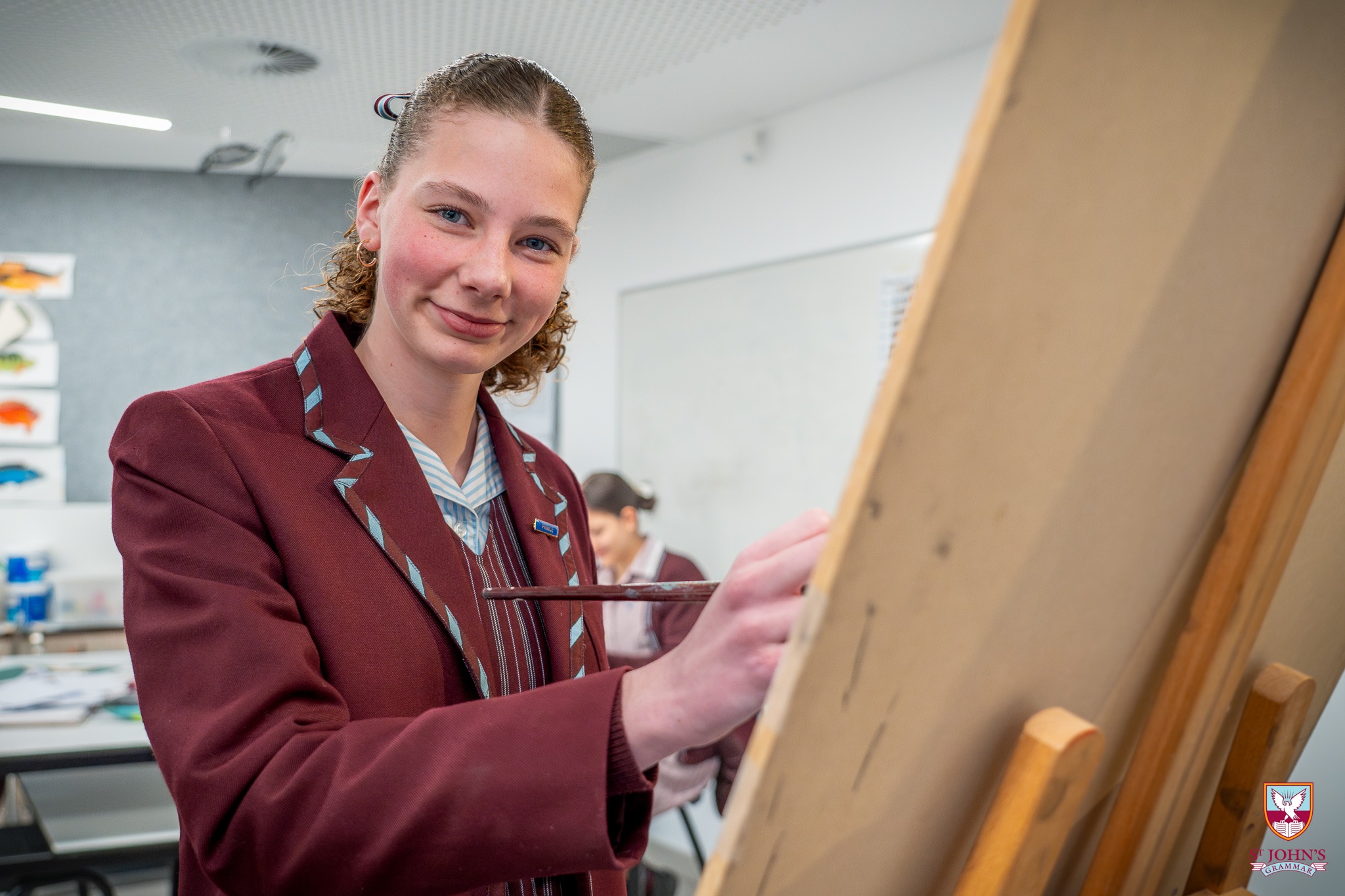Year 6
St John's Grammar
An exciting year for young people, Year 6 is jam packed with opportunities and challenges to soar into secondary school and begin the transition into adolescence.
Challenge is the focus of Year 6 with students being encouraged to step out of their comfort zone to take up leadership positions. Special ceremonies mark milestones in the year, including the beginning of Year 6 with the Leadership Ceremony, and the graduation from Junior School at the end of the year with the Valedictory Service. Throughout the year all students are supported to grow their skills to become our future leaders.
In the classroom, the single year level classes are managed by highly qualified teachers who teach a differentiated curriculum, with the additional support of the Year 6 Co Educator.
A suite of core subjects is presented through rigorous, explicit teaching with many opportunities for Year 6 students to be challenged and achieve to their fullest potential. Civics and Citizenship is an important part of the final year of primary school and students enjoy an engaging program culminating in a study tour to Canberra.
Developing Student Agency is also a key focus in Year 6, encouraging innovation and entrepreneurship. Year 6 signature programs include MiSpace, Triple E (Electives) Program and Clinics – a series of lessons prepared and taught by students.
Wellbeing is important in Year 6, to ensure a smooth transition into Middle School. Dedicated Health and Wellbeing lessons focus on growth and development learning and the teenage brain, to nurture students as they move forwards into adolescence.
The Digital Technology capabilities of our Year 6 group are developed by exploring topics such as cyber safety, identifying their digital footprint and participating in a range of coding and robotic challenges. Design and Technology experiences involve projects such as replicating the mini Cockington Green Village, making a stop motion production and developing an engaging class news report.
CANVAS is our Learning Platform to share content and offer real time assessment feedback, diary organisation and parent communication. CANVAS also allows students to access classroom support and enrichment, that aligns with student readiness.
Signature experiences are a highlight in Year 6, with a couple of stand out opportunities. The first is the creation of the Art legacy piece as a gift back to the school, and the other is the development of a VR trail experience for Belair National Park using a series of 360-degree photos, in partnership with the Park Rangers.
Our Year 6 students graduate as independent, confident learners with a strong spirit and drive to succeed, ready to soar into Middle School.
Structured, natural inquiry in Belair National Park
As we are privileged to be adjacent to Belair National Park (BNP), students complete a program to extend learning and skills by building on their extensive previous BNP experiences. Year 6s use 360-degree photos along 4 different trails within the Park to construct a special trail and identify different features within the park that are special to them.
The Year 6 students share their experiences within this beautiful natural space with others who are less able to access trails within the Park by developing a Virtual Reality Experience using digital software, VR head-sets, 360-photos and their understanding of local flora and fauna to share their love of the park with grandparents, family and special friends.
This opportunity to learn from and care for a space that our local and school community use provides unparalleled opportunities for children to learn; not only from an environmental sustainability perspective but also opportunities for calculated risk taking, resilience, social connection, and responsibility as they traverse, enjoy, and care for their local natural environment.
Five lessons per week are dedicated to student agency programs. The increased focus on enterprise and agency learning upskills students with learning principles of creating, innovating, problem seeking, and communicating to real audiences. As well as providing the chance to test and refine inventions and new ideas, we also provide the connections to industry and funding opportunities for students to develop their concepts or prototypes with experts. The programs offered in Year 6 include MiSpace, Clinics and Triple E.
The agency learning programs of MiSpace, Clinics and Triple E encourage entrepreneurship and develop important skills in creativity, problem solving, communicating. The connection to industry and experts, coupled with access to funding sees many students develop inventions and prototypes that make a real difference.
MiSpace
MiSpace allows students to develop a project on a topic or issue that interests them. It provides a chance to test out theories and enterprise experience.
Clinics
Clinics allows students to become the teachers as they plan, organise and teach a lesson in an area of their personal interest to small groups of their peers.
Triple E (Electives)
In Semester 2, students participate in the Triple E program. For two days, the Year 5s combine with Year 6 students to engage in exciting electives such as service learning, music, art, drawing, community service, innovation challenges, Flinders University Science visits and Sports Science. This engaging opportunity offers students a world of exploration that is intriguing and opens to the door to greater learning in future years.
Interstate trip
Civics and Citizenship is an important part of the final year of primary school and students enjoy an engaging program culminating in a study tour to Canberra.
This immersive learning experience sees students exploring the role of Parliament and the rights and responsibilities of Australian citizens. The study tour additionally offers a chance to explore exciting places in our nation’s capital, such as the War Memorial, museum of democracy, national archives, National Art Gallery and Cockington Green. Questacon helps to fire up the students’ creative and scientific thinking while traversing the nation’s capital.
Formal and informal leadership opportunities
At St Johns, we believe in nurturing leadership qualities in our students and providing them with opportunities to develop confidence, responsibility, and teamwork. Our Year 6 student leadership program empowers students to become role models within our school community while developing important life skills.
Leadership roles available:
- School Leaders and Deputy School Leaders – Represent the school at major events, contribute to school tours and lead whole-school initiatives.
- House Captains – Encourage team spirit, assist in organising sporting events, and support younger students in their houses.
- Arts Leaders – Promote the Arts programs and performances, be involved in instrumental lessons, performances and musical ensembles.
- RAP Ambassadors – Drive reconciliation activities within the school and in the wider community.
- YELP Leaders – Promote sustainability initiatives, assist with recycling programs, and encourage eco-friendly practices.
- Library Leaders – Assist with library activities, promote reading programs, and support younger students in their learning.
- Wellbeing Ambassadors – Collaborate with the Secondary Wellbeing Ambassadors and wellbeing staff to organise wellbeing initiatives and events across Senior and Junior Campuses.
We encourage all Year 6 students to step forward, lead with integrity, and make a meaningful impact on our school. We recognise the significant role each Year 6 student plays within the school community and as such each Year 6 student is considered a leader. All students will participate in various leadership opportunities throughout the year including Badge Day Ceremony and formal Valedictory Ceremony.
Preparing for the move to Secondary School
The transition to Middle School is a key milestone for Year 6 students, and we have several initiatives in place to ensure they feel confident and prepared. Throughout the year, our Year 6 students visit the Secondary Campus to participate in lessons, special events, and activities. They also engage in buddy programs with Year 11 students, helping them build connections and ease into the new environment.
Each Term, students take part in a structured transition program that includes opportunities to meet their future teachers, attend a language fair, watch drama showcases, and participate in other engaging activities and programs. A highlight of the transition experience is the Festival of Ideas, a cross-campus celebration of learning where students from different year levels meet, share projects, and explore new innovative ideas together.
By the end of Year 6, students are well equipped for a smooth and successful transition into Middle School.


